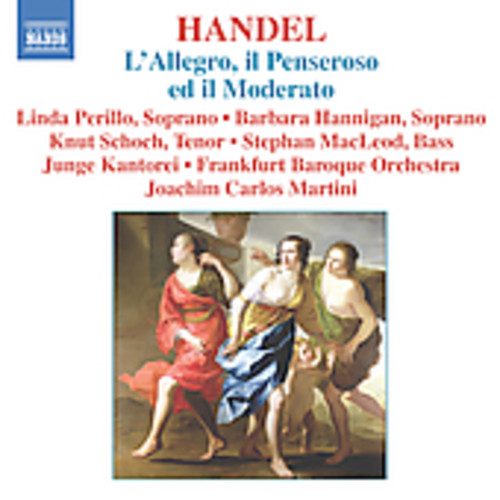Show results for
Deals
- 4K Ultra HD Sale
- Action Sale
- Alternative Rock Sale
- Anime sale
- Award Winners Sale
- Bear Family Sale
- Blu ray Sale
- Blues on Sale
- British Sale
- Classical Music Sale
- Comedy Music Sale
- Comedy Sale
- Country Sale
- Criterion Sale
- Electronic Music sale
- Fantasy Film and TV
- Folk Music Sale
- Hard Rock and Metal Sale
- Horror Sci fi Sale
- Jazz Sale
- Kids and Family Music sale
- Kids and Family Sale
- Metal Sale
- Music Video Sale
- Musicals on Sale
- Mystery Sale
- Naxos Label Sale
- Page to Screen Sale
- Paramount Sale
- Pop and Power Pop
- Rap and Hip Hop Sale
- Reggae Sale
- Rock and Pop Sale
- Rock Legends
- Soul Music Sale
- TV Sale
- TV Sale
- Vinyl on Sale
- War Films and Westerns on Sale

L'allegro Il Penseroso Ed Il Moderato
- Format: CD
- Release Date: 5/17/2005

L'allegro Il Penseroso Ed Il Moderato
- Format: CD
- Release Date: 5/17/2005
- Orchestras: Frankfurt Baroque Orchestra
- Performers: Barbara Hannigan, Junge Kantorei, Knut Schoch, Linda Perillo, Stephan MacLeod
- Label: Naxos
- Number of Discs: 2
- UPC: 747313205721
- Item #: NAX320572
- Genre: Classical
- Release Date: 5/17/2005

Product Notes
Composed in 1740, L'Allegro, il Penseroso, ed il Moderato is Handel's setting of poetry by John Milton, with additional verses (in the third part of three) by Charles Jennens. This oratorio is a kind of moderated dialogue between two personalities - the merry and carefree, and the thoughtful and ruminative. Jennens added "il Moderato" - the moderate man who balances the other two types. It seems not to have been Handel's intention to instruct listeners as to the most favorable type. Instead, he must have been most attracted by Milton's poetry, and by the opportunity to compose the sort of pastoral entertainment which he had found so congenial in earlier compositions. Sometimes the third part, entirely set to verses by Jennens, is dropped. This was the case even in Handel's time; it was felt that Jennens could not hold a candle to Milton. Some of the work's first recordings (for example, a 1960 version conducted by Sir David Willcocks) do the same, and also rearrange the remaining movements. This new version is given complete, however.

